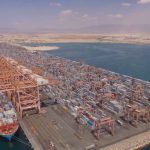The Public Prosecution in Bahrain has detained four Indian nationals for fishing kingfish during the ban and four Bahraini nationals for trawling with bottom trawl nets. The reports were received from the Coast Guard, leading to investigations and the seizure of boats and vehicles. The suspects have been interrogated, provisionally detained, and the police have been assigned to identify additional suspects. Proceeds from the seized items will go to a public auction, and witnesses will be called for court proceedings.
The head of the Public Prosecution emphasized the importance of adhering to ministerial decisions that regulate marine fishing. These regulations are crucial for preserving fish stocks and ensuring their availability in the future. By following these rules, individuals in the fishing industry fulfill their legal obligations and contribute to environmental and moral responsibilities. The aim is to maintain an ecological balance that supports biodiversity and sustains the livelihoods of those dependent on marine resources.
The cases involved violations of fishing regulations, with one group caught fishing kingfish during the restricted period and another group discovered trawling with bottom trawl nets. These activities are prohibited during specific times to prevent overfishing and protect marine resources. The Public Prosecution has taken swift action in response to the reports from the Coast Guard, conducting investigations, detaining suspects, and seizing equipment used in the illegal fishing activities.
The Public Prosecution’s prompt response to the reports showcases the government’s commitment to enforcing regulations that safeguard marine resources. By detaining suspects, seizing boats and vehicles, and initiating investigations, authorities are sending a strong message that violations of fishing regulations will not be tolerated. The actions taken also serve as a deterrent to others who may be engaging in similar illegal fishing practices, highlighting the consequences of such actions.
The involvement of both Indian and Bahraini nationals in the illegal fishing activities underscores the importance of upholding regulations regardless of nationality. Environmental and legal responsibilities in marine resource management apply to all individuals involved in the fishing industry, irrespective of their background. By enforcing regulations and holding violators accountable, authorities are working towards ensuring sustainable fishing practices and protecting marine biodiversity for future generations.
In conclusion, the detention of individuals involved in illegal fishing activities in Bahrain highlights the government’s commitment to preserving marine resources and enforcing fishing regulations. By seizing equipment, detaining suspects, and initiating investigations, the Public Prosecution is sending a clear message that violations will not be tolerated. Upholding ministerial decisions that regulate marine fishing is essential for maintaining fish stocks, preserving biodiversity, and sustaining livelihoods dependent on marine resources. Adhering to these regulations is not only a legal obligation but also an environmental and moral duty for all individuals involved in the fishing industry.










